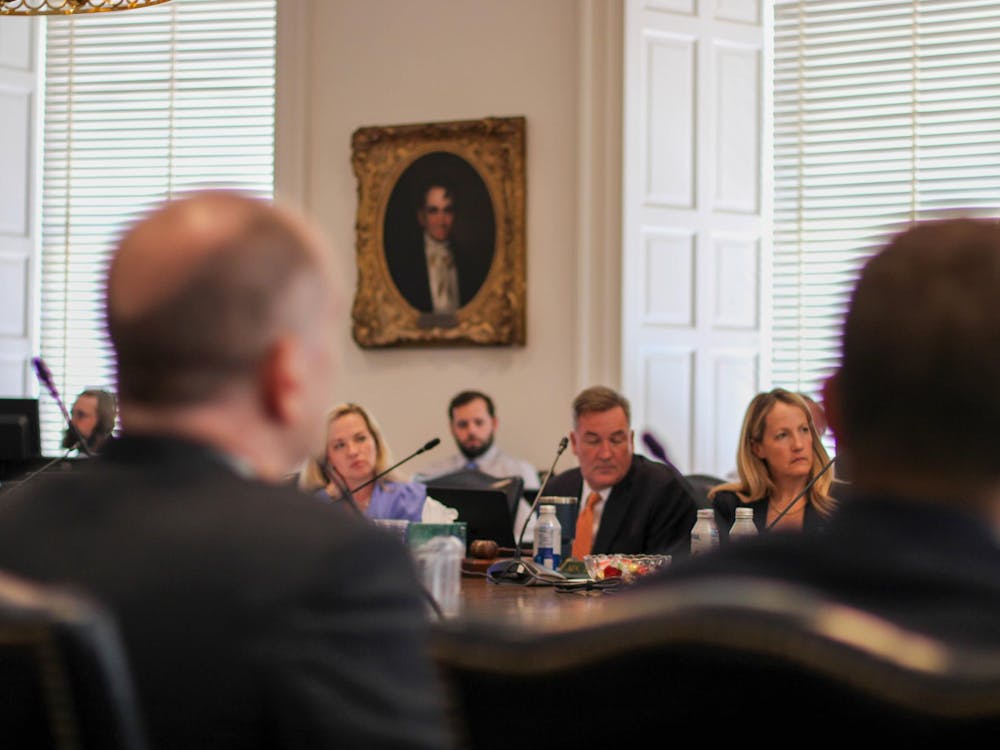Walking through the most recent activities fair, you might have seen the orange and blue signs and stickers for the Living Wage Campaign. The campaign focuses on the wages and treatment of the University’s hourly workers (dining hall workers, janitors, etc.). Students have been working on the campaign for many years, publishing their first documented resolution in 2006.
Their mission goes beyond their title. According to their website, the campaign has four main goals: guaranteeing a living wage (currently calculated at just under $14 for residents of Charlottesville) for all University employees, job security for those employees, ensuring humane working conditions and the creation of a Living Wage Oversight Board.
Recently, the idea of a living wage has become a hot topic in American politics. The University has long considered itself a flagship institution, leading the way on important issues in our country and the world. If the University continues to label itself a leader, it ought to lead by choosing to ensure a living wage for all its employees and encouraging other institutions to follow suit. Fourth-year campaign member Caitlin Levine says one huge obstacle is that the University does not directly employ many of its hourly workers. Instead, they contract labor out through various services. “For example,” Levine says, “Dining services are provided by Aramark, and nearly all dining hall employees at the University work for them.” According to the Living Wage Campaign’s most recent petition, these corporations are held to a lower standard than the University and their employees “can be paid as little as the federal minimum wage” ($7.25 per hour).
Recently, campaign members were disappointed when the University renewed its contract with Aramark — a contract which called for improvements in dining facilities and customer service but failed to address changes in worker treatment or wages. Levine says she and her fellow campaign members have grown frustrated because, “Administrators have told us time and time again that they do not see the practices of their contracted companies as any of their business.” Contracting labor out allows the University to turn a blind eye to the low wages and poor treatment of workers on Grounds. This is irresponsible. According to Levine, “[The University] has the right to audit its contractors. . . and [it] absolutely [refuses] to do that, despite tons of pressure over the years from the campaign.”
Perhaps the biggest flaw in the campaign is that its membership is consists mostly of students, not the workers for whom they advocate. Levine says the campaign “collaborate[s] with just a few workers.” Worker involvement is crucial in a campaign focused on worker treatment and wages. The employees deserve to speak for themselves, rather than having students speak on their behalf. Still, it makes sense that students would be more willing and able to participate. University employees have less free time and, unlike students, could face consequences for angering their bosses.
At the end of February, the Living Wage Campaign will hold a rally outside the Rotunda — yet as of Sunday, only 177 students had signed up to attend the rally on Facebook. Despite the many students who have devoted their time and energy to the campaign, the cause receives relatively little attention from the University as a whole. What the campaign needs most is for more people to show they care about this issue. The employees for whom the campaign advocates are the people students see every day. They are your favorite dining hall worker, the guy at Crossroads who always gives you extra fries, the janitor who comes early every morning to clean your hall’s bathroom. They keep the University running, and they are a part of that community of trust we hold so dear. Any person who works hard at a full-time job deserves to make enough to support himself, as well as his family. We ought to stand up for these workers just as we would stand up for our peers or professors.
Nora Walls is a Viewpoint writer.






